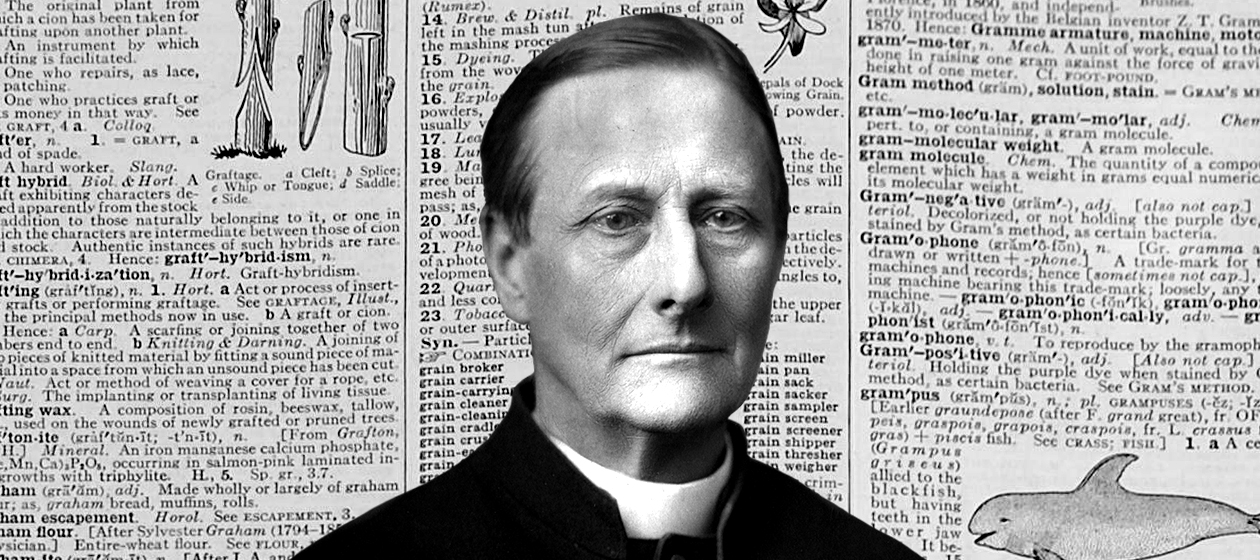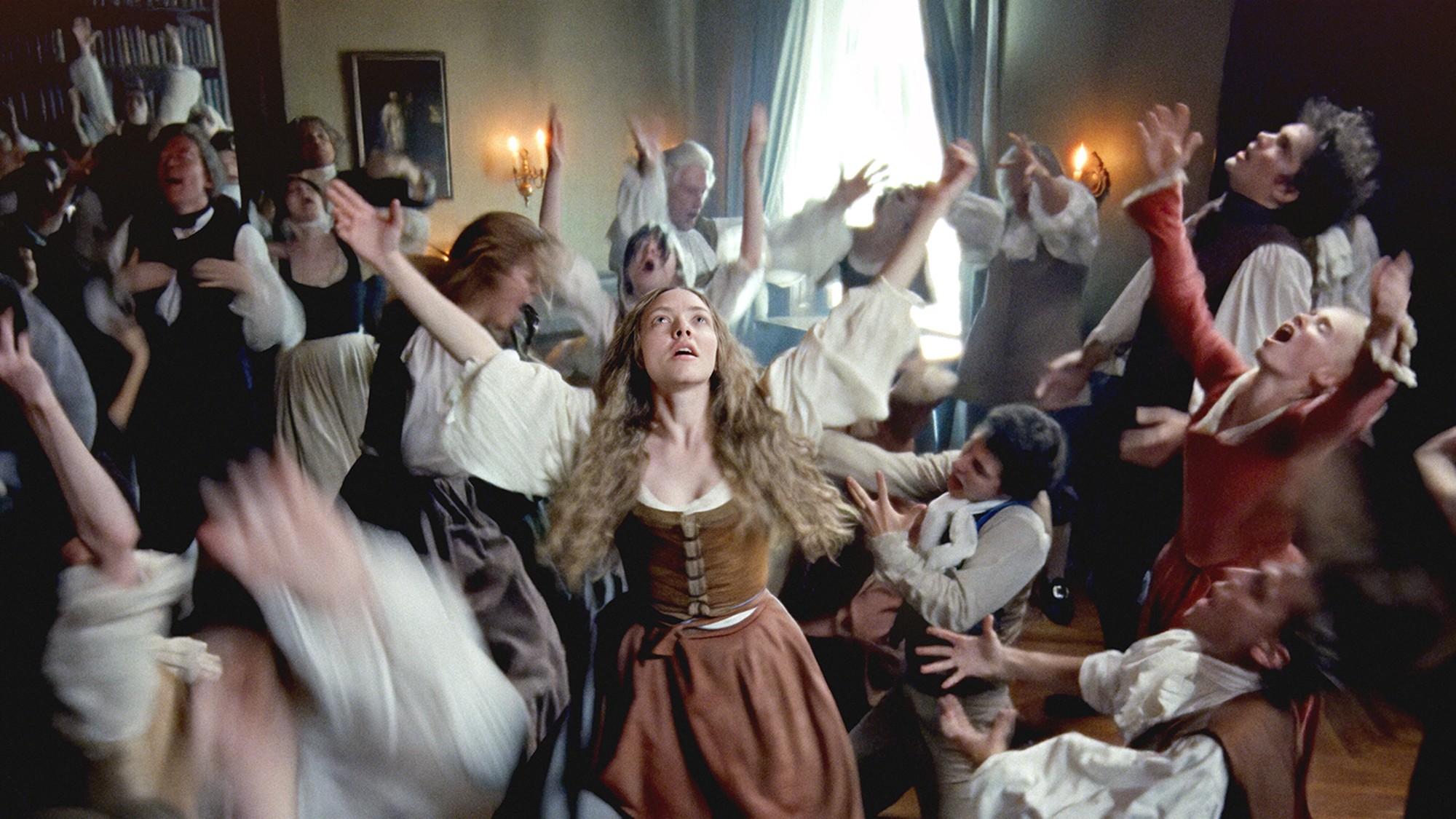The last man who knew everything
It hardly seems likely that the life of an obscure Anglican clergyman should recommend itself to the attention of a modern biographer. But Sabine Baring-Gould happens to have been the last man who knew everything.


It has been a long time since anyone knew everything.
In the Middle Ages there were any number of friars, like Vincent of Beauvais, who had absorbed more or less all that could be gotten from books; the jottings of these saintly polymaths once filled the libraries of Europe. The handful of things that Sir Thomas Browne could not discover in the numerous volumes he owned or consulted over the course of his long life he found out for himself by experiment — that "a Cocks egg hatched under a Toad or Serpent" does not produce a basilisk, for example. In 18th-century France the Encyclopédistes managed to reduce the entirety of learning to a mere 28 volumes, and even a jobbing English man of letters such as Oliver Goldsmith knew enough about, say, the life of Catherine the Great or Chinese philosophy or the anatomy of the garter fish to scribble articles or even entire books on them.
By the turn of the last century, however, things were somewhat more complicated. The sum total of human knowledge, of creation (or was it "nature"?) and its beasts and flowers, of the world's peoples and tongues, of technical and mechanical questions increased more prodigiously and at a greater pace during the reign of Queen Victoria than it had hitherto in any comparable span in history. Meanwhile the mass of theological and philosophical speculation continued to pile up and the unmanageable glut of literature did its best to satisfy a growing popular readership. An exceptionally clever man like Henry Adams confessed himself hardly equal to the task of understanding the latest modern experimental science when there was so much to know about French ecclesiastical history.
The Week
Escape your echo chamber. Get the facts behind the news, plus analysis from multiple perspectives.

Sign up for The Week's Free Newsletters
From our morning news briefing to a weekly Good News Newsletter, get the best of The Week delivered directly to your inbox.
From our morning news briefing to a weekly Good News Newsletter, get the best of The Week delivered directly to your inbox.
It hardly seems likely that the life of an obscure Anglican clergyman should recommend itself to the attention of a modern biographer; the shelves of second-hand bookshops are the sepulchers of many an Essex parson's dutifully compiled Life and Letters. But Sabine Baring-Gould happens to have been the last man who knew everything.
One really does mean everything. The Victorian parson's interests included but were not limited to philology, anthropology, folklore, children's stories, hymnology, hagiography, geology, topography, painting, optics, metallurgy, ancient and modern history, musical theory, biblical archeology, the plausibility of miracles, the minutiae of the English salt mining industry, and the theater. Among the 130 books he published were an anthology of Old Testament apocrypha; biographies of Napoleon I and the Caesars; histories of Germany, Iceland, North and South Wales, Cornwall, Dartmoor, the Rhine, and the Pyrenees; a guide to surnames; a 16-volume collection of saints' lives and a compilation of medieval superstitions beloved by H.P. Lovecraft among others; numerous volumes of sermons and dozens of novels; a theological treatise on the problem of evil; numerous works on ghosts; a surprisingly scholarly Book of Were-wolves. He also composed some 200 short stories and thousands of essays, prefaces, and magazine articles; he produced two collections of original verse and two memoirs and left behind a vast correspondence, thousands of pages of diaries, and a remarkable quantity of half-digested research.
Rebecca Tope, the distinguished crime novelist and independent publisher, begins her fascinating new biography, Sabine Baring-Gould: The Man Who Told a Thousand Stories, by admitting that she does not know how her subject was capable of such impossibly wide learning. The question is very likely unanswerable. It is also almost certainly the only thing she does not know about him. Making use of a seemingly inexhaustible amount of extant material, most of it previously unpublished, she has given us an endearing portrait of one of the most extraordinary and unusual intellects of modern times.
Baring-Gould was born in Exeter in 1834 to the daughter of an admiral and a former lieutenant in an Indian cavalry regiment. Much of his early life was spent in continental travel with his family. A sickly child, he attended school for two noncontiguous years and was otherwise instructed by private tutors. After taking his degree from Clare College, Cambridge, he worked briefly as a schoolmaster before receiving Anglican orders in 1864. By this time he had already begun his immense writing career, contributing 17 installments of Orœfa-dal, a novel about medieval Iceland, to a magazine edited by friends.
A free daily email with the biggest news stories of the day – and the best features from TheWeek.com
Readers will naturally ask how it was possible for one man to accumulate such a wide and various mass of knowledge, and to distill it into millions of published words. The two activities cannot be understood independently; in the age of instant publication via the internet it has become a cliché, but Baring-Gould seems to have been the sort of person who really did go through life without ever having an unpublished, or at least unwritten, thought. He wrote compulsively, with an almost inhuman energy, sitting down — or rather getting up: He was an early proponent of the standing desk phenomenon — to work every day and not leaving off until he felt he had finished. His daily quota was invariably one complete chapter, which often meant as much as 3,000 words. When he had completed a book, he would make his own fair copy and send it off to the publishers. Within a week he would be working on something else. It was this need to write that seems to have been the driving force behind his reading as much as his insatiable curiosity.
It would have been very easy to have written a biography of so prolific a writer that read like a puffed up, if judiciously annotated bibliography. Tope manages somehow to avoid such an obvious pitfall by placing her subject in the political and religious context of his era without allowing him to be subsumed into history or his work.
The result is among other things a very moving, if to modern ears somewhat exasperating, love story. Baring-Gould met his wife, Grace, while serving as curate of Horbury Bridge in Yorkshire. The daughter of a mill hand, she was considered by her eventual husband's ecclesiastical superior somewhat unsuited to the role of vicar's wife and was sent to York to receive instruction in the art of being a middle-class Englishwoman. To this tutelage she meekly submitted, and the couple were married in 1868. Together they had 15 children, of whom all but one survived to adulthood. When his wife died in 1916, Baring-Gould asked that her tombstone be engraved with the phrase Dimidium animae meae ("Half my soul").
Much of the interest of Tope's book lies with the enormous number of characters who intersected with her subject's vanished world. Some of them, from Cardinal Manning (whom he despised) to William Ewart Gladstone to Bernard Shaw, are well known. Many are not. Among the most fascinating of these latter is the Rev. Robert Stephen Hawker, a figure whose eccentricity surpasses that of Baring-Gould, who wrote the life of his friend, perhaps his very best book, in 1879. Hawker lived in a hut on the coast of Devon and went about in a poncho he claimed to have once been the property of St. Padarn. He spoke frequently to birds and once excommunicated his own cat. He also spent decades of his life giving Christian burial to men, often impoverished and without families, who had perished in shipwrecks.
Baring-Gould was himself a somewhat distrait caretaker of souls, first at East Mersea in Essex, then at Lew Trenchard in Devon, where he also served as squire of a considerable estate following the death of his father. He managed somehow to balance his parish and familial responsibilities with what he considered his duty to write reports for the Dartmoor Exploration Committee, to serve as the president of the Devonshire Association for one year and the head of the Royal Institution of Cornwall for 10, and to collect (and sometimes to bowdlerize) obscure folk songs. He delighted in cultivating a romantic image of himself walking desolate moors in search of the singers of forgotten ballads; he claimed on one such excursion to have encountered a werewolf in the flesh.
It would be wrong to assume that this melancholy antiquarian was uninterested in the lives of ordinary people or that he lived only for the past. "If one constant thread can be traced from his earliest years to his final weeks and months," Tope writes, "it must be his insatiable hunger for human narrative." This meant that he was obsessed not only with the grand questions of human affairs but, perhaps even more so, with the humbler materials of life. He especially loved jokes — an unfailing mark of sanity — and possessed a seemingly endless supply of unusual anecdotes. Friends considered him the greatest if not, where his own biography was concerned, always the most reliable storyteller they had ever heard. In his Lives of the Saints he devoted an inordinate amount of space to the most minor details of his subjects' terrestrial existences — St. Jonas' love of growing figs, for example — at the expense of theological reflection. Though he was guilty of many of the worst assumptions of men of his age and class (he once dismissed the possibility of a minimum wage for laborers as a plot to "ruin endeavor") he was unfailingly kind to his supposed inferiors.
Meanwhile he scribbled endlessly. Before he received his inheritance much of this frenzied activity was undertaken at least under the pretext of needing money. But it would be facile to suggest that this was the most important reason. It would likewise be astonishing to discover that such a large and varied body of work was in every particular original — certain passages in the Lives of the Saints are more or less identical to parallel entries from Alban Butler's earlier classic — or of inherent literary interest. "Even a brief summary" of his output, Tope writes, "can take one's breath away." Indeed it can. It can also induce occasional groans. It is not difficult to see why, unlike so many other obscure writers of Victorian supernatural fiction, the author of a sentence like "The moon glared from the sky, white, hard, with a remorselessness in its light, that [sic] brought out into hideousness all that was hideous, and flung inky shadows that were themselves full of horror" might enjoy a somewhat limited readership today.
For all that, though, it would be wrong to suggest that Baring-Gould was a slapdash writer. He was a master of irony and had a very fine sense of prose rhythm. His most lasting works — The Vicar of Morwenstow and Legends of the Patriarchs and Prophets — invite, and withstand, comparisons to Strachey or even Gibbon. None of the books of his that I have seen — I cannot pretend to have more than glanced at even 1/20th of them — has been uniformly tedious. It is simply impossible to write dozens of millions of words in every conceivable genre and on every imaginable subject without occasionally slipping up. To say that he was responsible for more dreck, measured by sheer volume, than 10 bad writers combined does not detract from the overall accomplishment of so prolific an author.
In any case, he valued the words of (mostly anonymous) others far more than his own. Of all his work, it was his research into the English musical tradition, which resulted in three substantial collections published between 1889 and 1907, that Baring-Gould considered his most worthwhile undertaking. This makes his endless forays into novel writing, theodicy, the history of lycanthropy, the efficacy of the waters at Lourdes, and goodness knows what else seem all the more remarkable. Six-hundred years earlier a priest of the order of St. Dominic might have held forth on the mystery of the Incarnation or nearly any other worthy subject, but what did he know or care of the songs sung by peasants who lived half a mile from his friary? For Baring-Gould such things were just as worthy of inquiry as the problem of evil or the question of the papal supremacy. It is the human depth, rather than the almost supernatural breadth, of his interests that is ultimately the most striking thing about him.
Baring-Gould died at the age of 89 in 1924. Many years later when his grandson William, the editor of the first annotated edition of the Sherlock Holmes stories, wrote a conjectural "biography" of the great detective, he filled numerous gaps with raw material extracted from the life of his ancestor.
This posthumous absorption into fiction strikes one as somehow fitting for a man whose life often seems in its quiet way "infinitely stranger than anything which the mind of man could invent."
Matthew Walther is a national correspondent at The Week. His work has also appeared in First Things, The Spectator of London, The Catholic Herald, National Review, and other publications. He is currently writing a biography of the Rev. Montague Summers. He is also a Robert Novak Journalism Fellow.
-
 6 exquisite homes for skiers
6 exquisite homes for skiersFeature Featuring a Scandinavian-style retreat in Southern California and a Utah abode with a designated ski room
-
 Film reviews: ‘The Testament of Ann Lee,’ ’28 Years Later: The Bone Temple,’ and ‘Young Mothers’
Film reviews: ‘The Testament of Ann Lee,’ ’28 Years Later: The Bone Temple,’ and ‘Young Mothers’Feature A full-immersion portrait of the Shakers’ founder, a zombie virus brings out the best and worst in the human survivors, and pregnancy tests the resolve of four Belgian teenagers
-
 Political cartoons for January 25
Political cartoons for January 25Cartoons Sunday's political cartoons include a hot economy, A.I. wisdom, and more
-
 Walter Isaacson's 'Elon Musk' can 'scarcely contain its subject'
Walter Isaacson's 'Elon Musk' can 'scarcely contain its subject'The latest biography on the elusive tech mogul is causing a stir among critics
-
 Welcome to the new TheWeek.com!
Welcome to the new TheWeek.com!The Explainer Please allow us to reintroduce ourselves
-
 The Oscars finale was a heartless disaster
The Oscars finale was a heartless disasterThe Explainer A calculated attempt at emotional manipulation goes very wrong
-
 Most awkward awards show ever?
Most awkward awards show ever?The Explainer The best, worst, and most shocking moments from a chaotic Golden Globes
-
 The possible silver lining to the Warner Bros. deal
The possible silver lining to the Warner Bros. dealThe Explainer Could what's terrible for theaters be good for creators?
-
 Jeffrey Wright is the new 'narrator voice'
Jeffrey Wright is the new 'narrator voice'The Explainer Move over, Sam Elliott and Morgan Freeman
-
 This week's literary events are the biggest award shows of 2020
This week's literary events are the biggest award shows of 2020feature So long, Oscar. Hello, Booker.
-
 What She Dies Tomorrow can teach us about our unshakable obsession with mortality
What She Dies Tomorrow can teach us about our unshakable obsession with mortalityThe Explainer This film isn't about the pandemic. But it can help viewers confront their fears about death.
